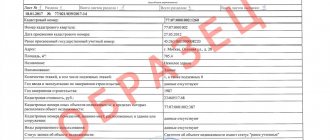The transition of modern Russia to the triumph of private property has given rise to many conflicts and problematic situations. This especially applies to real estate ownership (both residential and non-residential).
If the situation with apartments or rooms in a communal apartment is more or less clear, then with houses, dachas, various utility rooms, and garages, confusion often arises. The fact is that a lot of such premises were built by the grandfathers and parents of modern Russians.
People lived in such houses, used other premises, and it did not even occur to them that they needed to somehow document their right to such real estate. This was done due to habit, mentality, or simply a frivolous attitude towards bureaucratic procedures.
The same was true for their children or grandchildren, who continued to live in such ownerless houses. And sometimes abandoned houses were occupied by complete strangers, and, say, in communal apartments, the rooms vacated after the death of lonely old people were occupied by neighbors.
What is the statute of limitations?
However, sooner or later the situation changes, and users of such real estate seek to legalize it and legalize their own legal relations with this real estate.
Current Russian legislation allows this to be done on the basis of the so-called acquisitive limitation period. But the procedure for legalizing real estate is quite complicated, often associated with litigation. At the same time, citizens should know at least a basic understanding of what kind of legal instrument this is.
The mechanism for its application is prescribed, first of all, in the Civil Code of the Russian Federation (Civil Code of the Russian Federation). And its essence is that a citizen (as well as a legal entity), who conscientiously, openly and continuously uses certain property for a certain period of time, has the right to declare his ownership of it.
The acquisition limitation period for main types of property (including movable property) is five years, but for real estate it is 15 years. After the expiration of such a period of fair use, the non-owner has the right to claim an official change in his status for the better.
Registration of property rights by court decision
Legal MariS provides legal services in the field of registration of rights to real estate by court decision in Moscow, the Moscow region, as well as in some regions of the Russian Federation.
Duration of registration of property rights by court decision: from 7 working days
Cost of registering property rights by court decision: from 10,000
For legal advice on registering rights to real estate by court decision, call:
+7 (495) 727-7724 or send a question through the form.
Within the framework of legal MariS, it provides services on:
- Collection of necessary documents
- Registration and preparation of documents
- Legal examination of documents
- Legal support
- Conducting a case in court
- Registration of property rights
The basis for registering ownership of a property will be a court decision. There are pitfalls in obtaining the necessary judicial act. Often the courts do not want to make a positive decision, even if you have all the necessary documents. Problems may lie not only in the court decision, but also in the registration authority, which may require additional documents and delay the process of registering property rights.
The Civil Code of the Russian Federation names a court decision as an independent basis for the emergence of civil rights and obligations (subparagraph 3, paragraph 1, article 8 of the Civil Code of the Russian Federation). The Registration Law classifies judicial acts that have entered into legal force as grounds for state registration (Clause 1, Article 14). The same Law in Art. 58, defining the specifics of state registration of rights to real estate on the basis of a court decision, arbitration court or arbitration tribunal, establishes several rules:
- In the absence of reasons preventing the state registration of the transfer of a right and (or) a transaction with a real estate property, the presence of a legal dispute about a registered right is not a basis for refusing state registration of the transfer of such a right and (or) a transaction with a real estate property.
- If a court decision provides for the termination of the right to real estate of one person or establishes the absence of a right to real estate for such a person and at the same time provides for the emergence of this right for another person or establishes the existence of a right for such another person, state registration of rights on the basis of this A court decision may be made upon the application of a person whose right arises on the basis of a court decision or whose right is confirmed by a court decision. In this case, a statement from the person whose right is terminated or recognized as absent by this court decision is not required, if such person was a defendant in the relevant case, as a result of which a similar right to this property was recognized for another person.
- The state registrar does not have the right to refuse state registration of a right established by a court decision that has entered into force.
Depending on the requirements, the court may oblige the registration authority, for example:
- make a record of the applicant’s right to real estate in the Unified State Register of Real Estate;
- cancel the entry on the right in the Unified State Register of Real Estate;
- register the plaintiff's right;
- oblige state registration of rights under the transaction;
- issue a certificate of entitlement to the applicant;
- make appropriate changes to registration records;
- accept documents for state registration in the set in which they were previously submitted;
- provide the applicant with the requested information on state registration of rights and real estate objects;
- issue a copy of the mortgage, etc.
When drawing up a statement of claim, it is advisable not only to formulate demands for recognition of the relevant decision or actions (inaction) of Rosreestr, its territorial bodies, their separate divisions and officials, but also to indicate the method of restoring one’s violated rights.
The procedure for registering ownership of real estate
As mentioned above, a user of real estate who is not the owner, but who claims such a right, must meet several important criteria.
Throughout all these years, the user's actions in relation to the property must be open, conscientious and continuous throughout the entire period. If, say, a person moved out of his house for some reason, and then returned and demanded recognition of his ownership of it, then the court decision will be negative.
Another important point is that the previous owner must have officially registered ownership of this property (at least in the BTI). Otherwise, the deceased users will first have to have their ownership rights recognized in court, and the 15 years required by law will have to be counted from this date.
If the status of the property is determined, then only the court will be able to transfer ownership of it to you. To do this, a statement of claim is filed with the district (city) court at the location of the property. You must first pay a state fee, which is calculated based on the inventory value of the property. By default, the defendant in such a claim is the local government.
In court, you must provide evidence that you have actually used the property “as if it were your own” for 15 years. And they did it in good faith and openly - let’s say, they didn’t hide from their neighbors and didn’t cause them damage with their actions.
Evidence may include receipts for construction materials (if you made repairs or installed double-glazed windows), contracts for housing and communal services and paid bills, insurance contracts, tax receipts, as well as witness statements.
After a positive court decision is made, ownership should be registered with the relevant body of Rosreestr.
Want to share?
General information
Reasons for going to court to recognize ownership rights to real estate:
- The document providing the basis for obtaining ownership rights to the apartment does not comply with current legal requirements,
- The impossibility of inheriting real estate by a testator who received it under a simple agreement,
- Absence of legal documents for residential real estate, with actual ownership and maintenance of the apartment for more than 15 years and the presence of an extract from the house register,
- Recognition of ownership rights to real estate in a new building,
- The need to legalize the construction of a private house in the absence of land documents,
- The need to include real estate in the inheritance estate,
- When dividing property as a result of divorce proceedings,
- Restoring rights to your property if they have been deprived as a result of fraudulent actions.
Registration of a house through court
Any house stands on a plot of land that has a certain area. Therefore, each owner must own two documents: ownership of the plot and the house. Registration of a land plot as personal property To register, you need to go through several stages:
- land documents are submitted and registered;
- the legality of the transaction is checked and documents are examined under a power of attorney;
- the applicant’s rights are checked and the absence of contradictions is established;
- entries are made in the Unified State Register;
- documents are signed and a certificate of ownership is issued.
The following papers will be required for registration: identification card, purchase and sale agreement, title to the plot, cadastral plan, receipt of payment of state duty.
How to register a house as your own
In 1994, my husband and I bought a house in the village, gave the money to the seller, and he wrote a receipt that he received money for the house. The transfer of money took place in the presence of witnesses, but they did not put their signatures on the receipt. Our ownership of the specified house is not confirmed by any other documents.
Recently it was necessary to register ownership with Rosregistration, but they said that the required documents were not available. Our lawyers have received more than a thousand positive decisions recognizing ownership of apartments and parking spaces in new buildings in Moscow and the Moscow region. The construction boom in Russia has provided citizens with virtually unlimited opportunities in choosing housing. Following demand, prices per square meter have also increased; naturally, more and more people want to buy an apartment or non-residential premises in a new building every year.
Registration of property rights through the court
If your house has been put into operation, occupancy is in progress, but for some reason the developer does not begin registering property rights, you can receive a Certificate based on a court decision recognizing ownership of your apartment.
Our prices are lower than our competitors! We have extensive in-house litigation practice on houses built by PIK Group of Companies, SU-155 CJSC, Donstroy Company, DSK1, Glavmosstroy-Nedvizhimost, little-known and problematic developers - ETO-S LLC, Housing Initiative Corporation, LLC "IPOTEKASTROYSERVIS", GC "Druzhba", CJSC "Energostroykomplekt-M" and others.
We recommend reading: Form of apartment rental agreement
If the apartment was received on the basis of a court decision
STEP-BY-STEP INSTRUCTIONS – continued:
A court decision is a legislative act that is subject to unconditional execution. It is understood that all disputes, claims and property claims have already been considered by the court, and a clear and unambiguous verdict has been issued on them - who ultimately has what rights to this property.
Most often, court decisions on the ownership of property (including real estate) are made as a result of disputes between former spouses, who themselves cannot agree and divide their property among themselves - common joint property.
But there are other situations that require the court to determine the ownership of an apartment for a particular applicant. For example, disputes over inheritance.
In any case, the basis document for registering property rights will be a court decision .
This court decision may list many different properties that are distributed between the parties to the conflict, but we will only be interested in the indication related to the apartment.
It should be borne in mind that the court can distribute between the parties to the conflict not only the ownership rights to the apartment, but also the rights to use it. Including the property rights of children in relation to the apartment (if any are present in the family).
If we encounter ambiguous or not entirely clear conclusions in the wording of the court decision , we can seek additional legal advice to clarify the issues that have arisen.
How do alternative transactions with apartments take place? What is the procedure there? – see the link.
But usually court decisions are drawn up in such a way that their wording is interpreted unambiguously and does not cause additional disputes on the resolved issues.
For the Buyer of the apartment, in this case, the court decision is a rather convenient document, because it clearly determines the ownership of the apartment, the composition of its owners (including minors), and the presence or absence of encumbrances on it in connection with the dispute that has arisen.
In other words, those disputes and legal claims to the apartment that could arise have already arisen and have been considered and resolved in court. Ownership rights to the apartment are determined and registered in Rosreestr. For the Buyer, the risks of new disputes on the same topic are significantly reduced.
We, as the Buyer, only need to make sure that the court decision has entered into legal force and the procedural deadlines for appealing .
The period for appeal in civil cases usually does not exceed a month (a court decision can be appealed before it enters into legal force). And the very fact of registered ownership on the basis of this decision indicates that it has already entered into legal force.
Theoretically, it is possible to challenge a court decision even after it has entered into legal force, but this is extremely difficult, and this requires compelling reasons and newly discovered circumstances. For example, irrefutable evidence of forgery of documents or false testimony has appeared.
Again, if the resulting property right is more than 3 years old, that is, the court decision was made quite a long time ago, then the likelihood of it being challenged is negligible.
This means that the Buyer can breathe easy here.
In what cases may registration of a transaction with an apartment fail? Reasons for suspension and refusal to register rights – see the link.
A court decision can also be the basis for registering ownership rights in the event of a challenge to a previous transaction with an apartment. If the transaction was previously declared invalid by the court, then based on this court decision the apartment was returned to the previous owner.
In other words, our Seller had previously sold his apartment to someone, but then managed to win it back and became its owner again. In principle, everything is according to the law. But do we want to deal with such a Seller?
In the secondary housing market, competent legal support is especially important for the Buyer. Specialized lawyers will help you check the Seller and the documents for the apartment, reduce risks and support the transaction - HERE.
To continue the steps of the INSTRUCTIONS, we go back to the previous section, and from there we move further down the steps.
Step-by-step instructions for obtaining ownership of real estate in court
- Preparation and drawing up of a statement of claim. This can be done either independently or with the assistance of a professional lawyer.
- Submitting a claim and related documents to the courts.
- Waiting for the court's decision and its entry into force.
- Registration of ownership rights to an apartment in the Rosreestr branch.
Based on the requirements of the Civil Procedure Code, the statement of claim must reflect the following points:
- Full name of the court to which the statement of claim is sent,
- Personal data of the applicant - last name, first name, patronymic, address at the place of registration and place of residence, contact details,
- Personal data of the defendant - last name, first name, patronymic or full name of the organization (if the defendant is a legal entity), registration address,
- Description of the controversial situation - the reasons for the violation of property rights to real estate, a detailed presentation of all the important details of the case,
- Motivational requirements of the plaintiff,
- List of documents attached to the statement of claim,
- Cost of claim
- Date of compilation and personal signature of the plaintiff.
Registration procedure
Due to the regulated nature of the process of state registration of property rights, it is necessary to strictly adhere to this algorithm.
The stages of state registration include:
- preparatory – collection of documents necessary for registration;
- appeal to the authorized state registration body (department of the federal service for state registration, cadastre and cartography (Rosreestr);
- legal examination of documents provided by the applicant;
- obtaining a document on registration of ownership of the apartment.
Attention!
Visually, this order looks more than simple. The longest and most difficult stage is the stage of collecting documents.
Ownership rights to objects in a new building
Separately, it is worth considering situations of obtaining ownership rights to apartments in new buildings through the court. Since developers are increasingly refusing to draw up standard documents for the purchase of an apartment, which are subject to registration with government agencies and obtaining ownership rights to the property.
In addition, after the house is put into operation, the time frame for registering rights to the apartment may be unreasonably prolonged, which will also serve as a basis for legal proceedings.
Problems that may lead to filing a claim to obtain ownership rights to an apartment in a new building:
- The construction company does not issue documents that are necessary for registration of ownership of real estate,
- The developer does not have permission to build a house,
- The presence of difficulties with the organization and installation of utility networks may delay the date of commissioning of the house, and, accordingly, obtaining ownership rights to housing,
- The actions of the developer are fraudulent, for example, selling the same apartment to several buyers at once.
Judicial practice shows that in these situations, court decisions are most often made in favor of shareholders.





